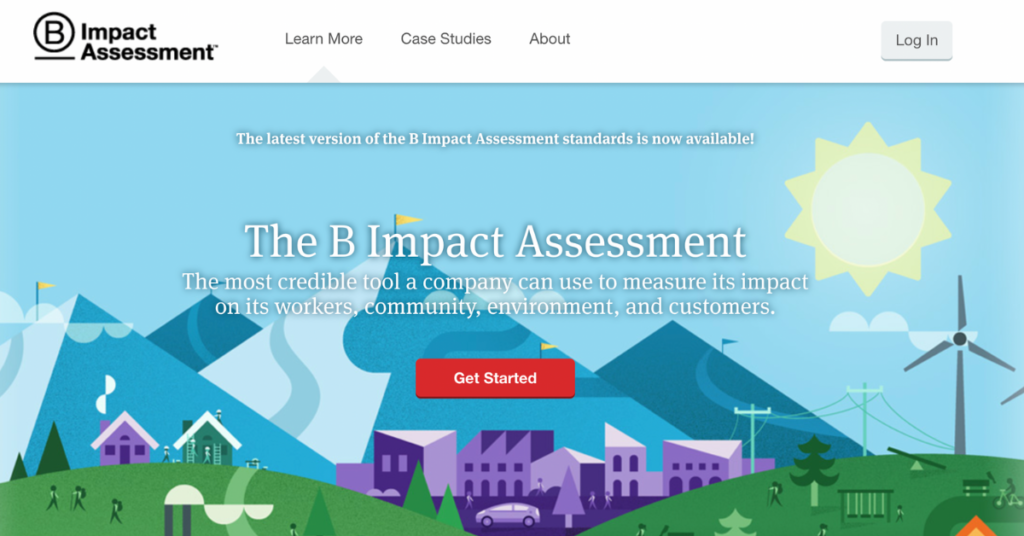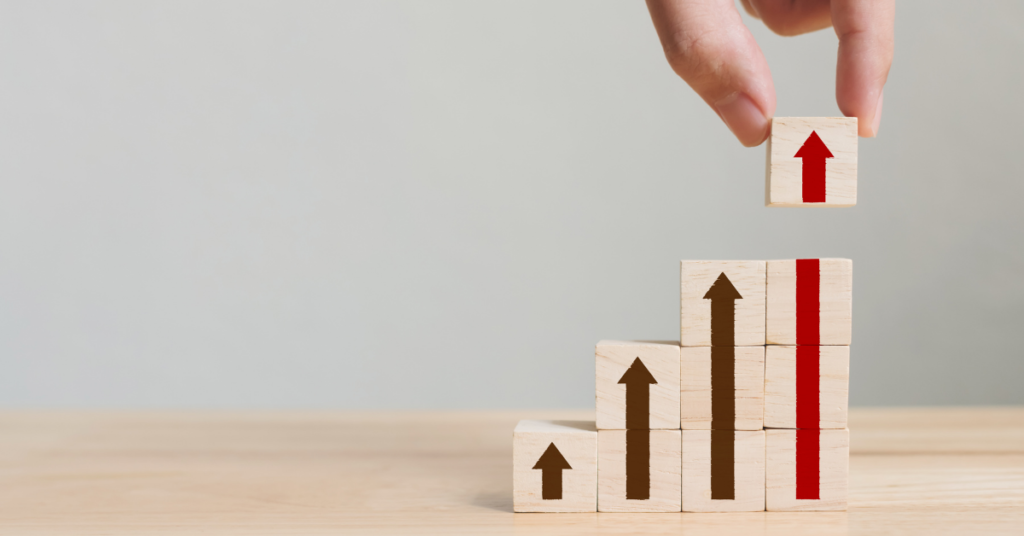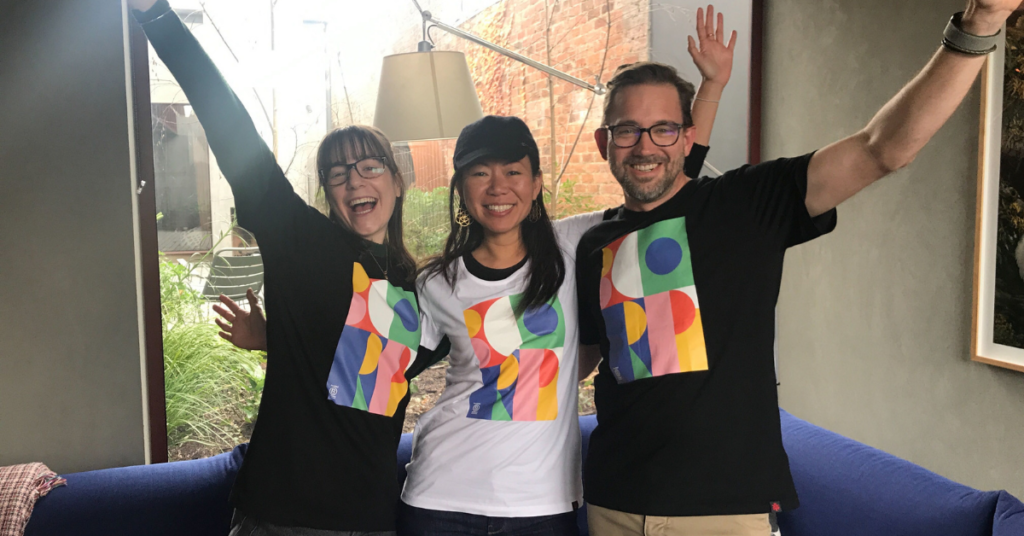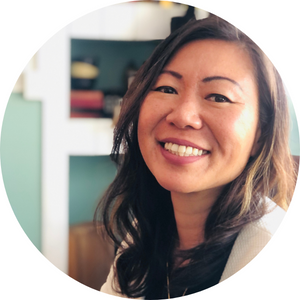By Mindy Leow
We can only manage what we measure. This is one of the most fundamental truths in business. And, for every business that has certified as a B Corp, there are 25 others who have started using our free tool to measure and manage what matters most.
Best known as the mechanism for achieving B Corp certification, the B Impact Assessment or ‘BIA’ is a standalone technology platform that provides a comprehensive, holistic and rigorous framework for any company looking to measure and improve its impact for stakeholders: workers, community, environment, and customers, using standards that are independently governed.
Already being used by more than 100,000 companies globally, the BIA is powered by a set of social and environmental standards developed by B Lab over 15 years. Its usage for self-assessment, benchmarking and improvement is completely free and confidential, and it is adaptable and easy to use.
Whether you are at the start of your better business journey, or you are looking for ways to deepen and improve the way your company balances people, planet and profit, let’s unpack three ways the BIA can help.

1. Understanding and mapping your current impact
If you don’t know where you are going, any path will get you there. And the best way to determine where you are going and improve your company’s impact is to first understand exactly where you are right now.
Each BIA results in a ‘B Impact Score’, designed to give you an objective, comprehensive and educational baseline view of your company’s current social and environmental performance. This score is calculated via a self ‘assessment‘ where you answer a series of 250+ questions.
“The BIA provided a mechanism for Patagonia to conduct a comprehensive assessment of our current social and environmental programs, and it incentivised us to take the time to quantitatively measure the performance of our programs.”
— Elissa Loughman, Patagonia
Often asked ‘what is a good score’, the way we see it – any score higher than 0 is a good score, because it indicates your business is doing something positive for society and the environment. That said, the BIA is designed to reward practices that go above and beyond standard business practice; therefore, every point earned reflects incremental, positive impact.
Most companies score between 40 and 100 points out of the 200 points available, and the 80 points you need to qualify for certification. The median score of all completed BIAs is 55, compared to the average score for Certified B Corporations in our region (Australia and Aotearoa New Zealand) of 96. View a sample of Patagonia’s BIA Report here.
Of course, you’re probably wondering how long it takes. The short answer is: how long is a company’s impact? For most small businesses, completing the BIA normally takes between 1-3 hours, though it largely depends on the size, age, and complexity (number of operating locations) of your company.

2. Identify and benchmark areas to improve your impact
While comparison might be the thief of joy, competition can be a source of innovation and inspiration in business. Designed to educate businesses and promote positive practice, the BIA provides benchmarks to support businesses, not only to build capability and discover new possibilities for impact improvement, but to be inspired by other companies walking the walk.
“We might have ‘talked the talk,’ but did we really walk the walk? If the Assessment could talk it would have said, ‘nice try, Notogroup, you can do better.’”
— Roy Notowitz, NotoGroup
One thing we know about the BIA is that: context is key. Several features such as the ‘Benchmarking’ and ‘Set A Goal’ functions allow for healthy comparison with other companies in similar countries, sectors and size ranges, to encourage continuous improvement and benchmarks for performance with peers.
With additional case studies embedded throughout to promote learning and inspiration, the BIA helps you understand where you’re at and where you’re going, in context.

3. Engage and empower your team
Better business is a team sport. And the companies who score the highest in the BIA are those who take a ‘whole of organisation’ approach to social and environmental responsibility.
As more and more employees seek to work with and for companies that don’t compromise their values, aligning efforts to improve your company’s social and environmental practices with employee values leads to greater accountability, better success and higher rates of engagement and satisfaction.
By engaging your team in identifying areas of improvement and celebrating the progress you have already made, the BIA can be a way to formalise that values alignment.
With the ability to enable multi-users and to save and revisit any time, the BIA helps to promote collaboration and a team approach for embedding greater sustainability and inclusivity on the road to better business.
Using the BIA to redefine our global economic system
In the two years since the pandemic started, B Lab has seen an exponential and incredibly heartening growth for demand in B Corp certification. This acceleration is great news, not just for the movement, but for the world with a greater number of businesses and employees finding their purpose and making measurable steps towards positive change.
If we are to achieve our vision of an inclusive, equitable and regenerative economic system, we need more and more (if not all) businesses to be accountable for reducing their negative impacts and generating more positive outcomes for people and planet.
The B Impact Assessment or BIA is a valuable resource that can help you take your first or simply the next step on your journey to better business. Plus, it’s free. So, what are you waiting for?

Mindy Leow (she/her)
Mindy is B Lab Australia and Aotearoa New Zealand’s Head of Growth & Impact. She started her career in the media and advertising industry before moving from the USA to Australia, where she has since been working at the intersections of purpose and profit for more than a decade. Prior to B Lab, Mindy was involved in growing the social enterprise sector in Australia through her roles at Social Traders and StartSomeGood.

